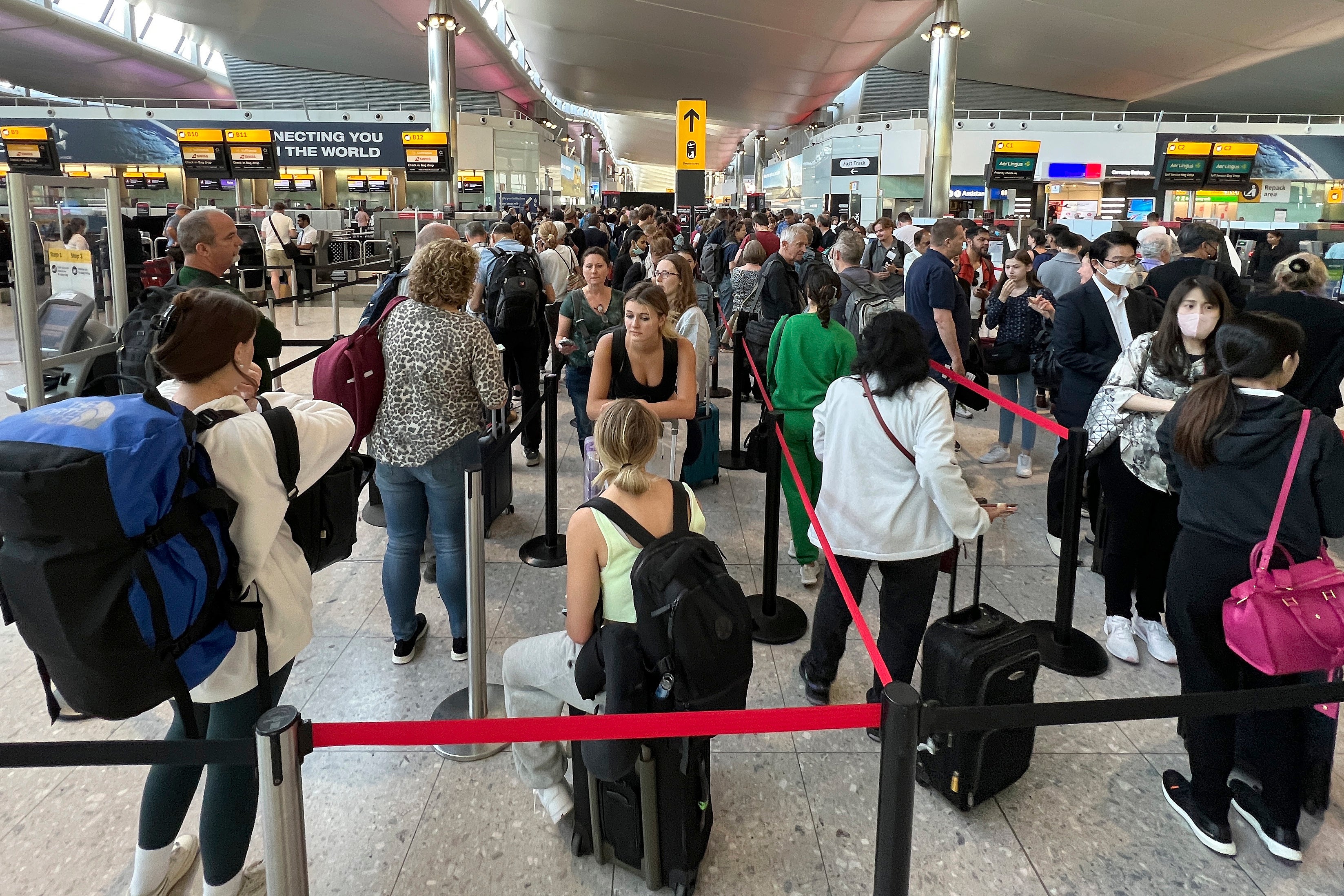Heathrow has been told to cut its fees per passenger – not before time
The London hub wants to be able to charge airlines more for landing, citing uncertainty over pandemic recovery and the need for investment, writes James Moore


The Civil Aviation Authority (CAA) was always going to find itself flying into turbulence over the issue of Heathrow’s charges to airlines for operating its terminals, runways and other facilities.
The airport wanted them raised, from an already chunky average of £30.19 per passenger, making it one of the world’s most expensive hubs. That number, a sharp increase on the previous £22, was announced in December last year. It was allowed by the CAA on an interim basis – in recognition of “the uncertainty of the recovery of passenger volumes at the airport from the pandemic”. The latter wasn’t helped by the emergence of Omicron.
Covid, obviously, badly dented the loss-making airport’s financial model. It did that to industries in almost every sector, including the airlines. Heathrow has now been told by the CAA to cut the charges, so they steadily fall, to £26.31 per passenger in 2026. The CAA initially set out a range of between £24.50 to £34.40 for consideration.
The outcome would appear, based on that, to represent a modest win for the airlines and their passengers (who would have borne the brunt of any increase).
The two sides had presented starkly differing views of how passenger numbers will go to a previous Transport committee inquiry. Heathrow characterised the market’s current buoyancy as a temporary bubble created by people, who had been shut in the homes during lockdowns, jumping on planes to get away now the world is (more or less) open again.
The airlines argued that it is part of a continuing recovery and that Heathrow was just trying it on. Willie Walsh, the combative former British Airways boss who now runs IATA, the international airline trade body, told MPs it was “a greedy monopoly”. Heathrow, obviously, does not agree with that view
The Transport committee recommended, having heard all this, that the CAA should hang fire on the changes to the charges announced today, for a year. That would allow for the collection of more data, based on the sector’s recovery being in its early stages.
This may have been wise because the CAA has ultimately had to make its decision based on what amounts to guesswork.
This is not a knock on the CAA. It is simply a recognition of the fact that, in the middle of economic uncertainty, combined with a potential fifth wave of Covid, any estimate of passenger numbers over just the next year will be an exercise in pin sticking, let alone further into the future.
However, there is still room for manoeuvre over the outcome, which the CAA said was designed to offer the airport and its investors “medium-term certainty”. The proposals are now subject to consultation before a final decision is published, and even after that there is the potential of an appeal to the Competition & Markets Authority (CMA).
As things stand, it is rather hard to see how that will do Heathrow much good.
The airport argues it needs extra for investment to “improve the passenger experience”. The latter is, indeed, miserable at the moment across the industry.
The problem for Heathrow is that it has about as many fans as a Boris Johnson barbershop quartet at a trade union benefit night, given disruption travellers have faced. “Horrific” queues, baggage pile-ups, technical foul-ups, staff shortages.
Yes, Covid and the rapid recovery in travel afterwards would have presented challenges to any organisation.
But the above does not speak at all well of the operation, and that is before we even consider the disgraceful treatment of disabled passengers, rightly raised by the CAA’s chief executive Richard Moriaty in a BBC interview.
Some disabled travellers – including this one – have simply given up the thought of travelling.
If Heathrow is unhappy with the pricing outcome it has received, it might care to reflect on the fact that it hasn’t been doing itself any favours with the travelling public. A better outcome for passengers might have led to a better outcome for it.
Heathrow needs to do better and it must be seen to be doing better. It is proving a poor advertisment for privatisation and the private infrastructure operators the government says Britain will benefit from.
As for the CMA, it is hard to see the watchdog intervening to improve things for the airport, if that is the route Heathrow’s bosses choose to go down.
The CMA would have to assess any appeal based on the facts presented to it, using the criteria laid out for it under its remit. However, it doesn’t operate in a vacuum. Overturning the CAA and allowing Heathrow to charge more would put it on a very bumpy flight.






Join our commenting forum
Join thought-provoking conversations, follow other Independent readers and see their replies
Comments